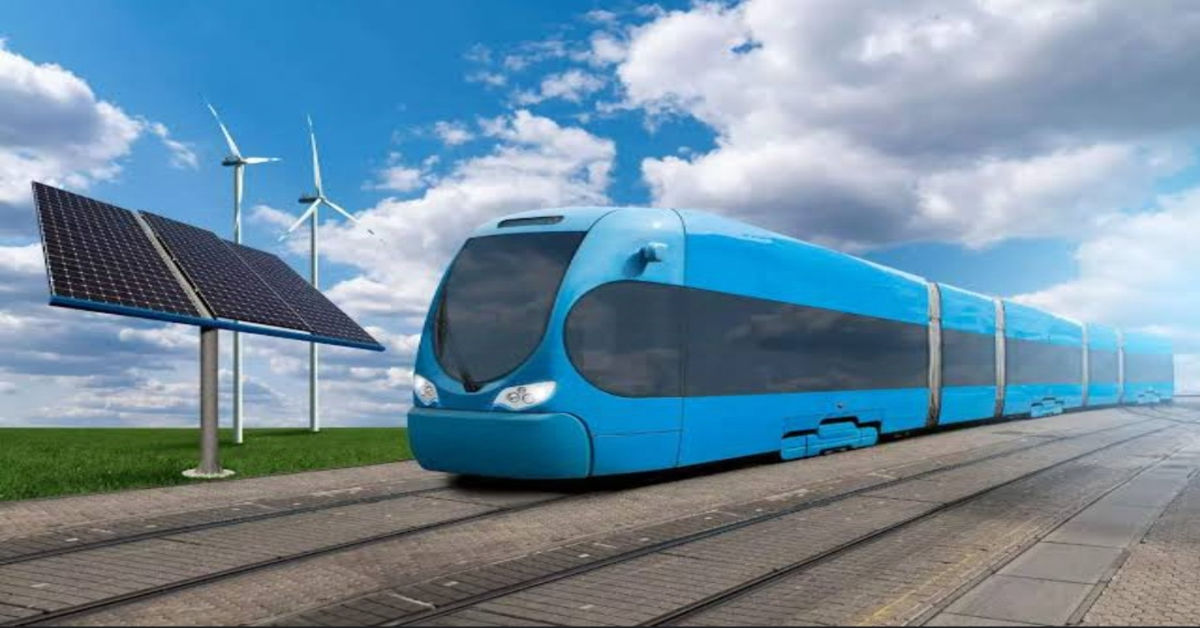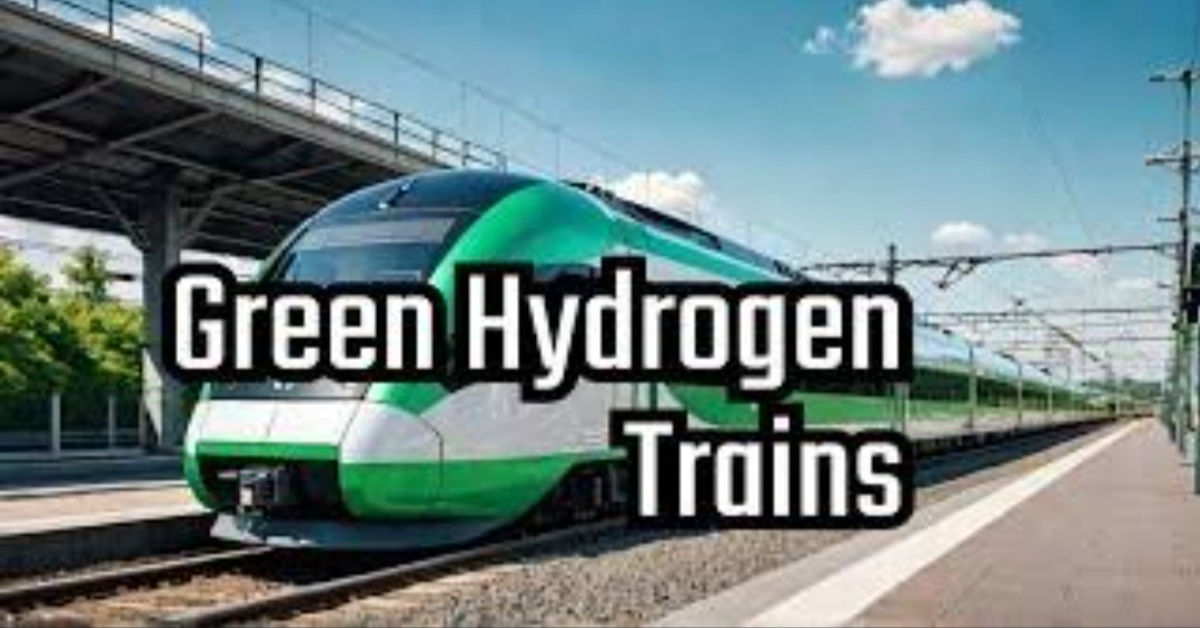India to Launch Hydrogen-Fueled Trains by December 2024: A Green Revolution in Rail Transport
India stands on the brink of a significant milestone in its transportation sector with the announcement of hydrogen-fueled trains expected to be operational by December 2024. This initiative aligns with the nation’s commitment to reducing carbon emissions and transitioning towards cleaner energy sources, marking India as the fifth country globally to introduce such trains. In this comprehensive exploration, we will delve into the implications, technological advancements, potential challenges, and future prospects of hydrogen-fueled trains in India.
The Global Context of Hydrogen-Fueled Trains
Before diving into India’s initiative, it’s essential to understand the global landscape surrounding hydrogen fuel technology. Countries such as Germany, the UK, Canada, and Japan have already begun to deploy hydrogen trains, demonstrating their feasibility and efficiency. Germany, for instance, successfully launched the world’s first hydrogen train in 2018, which marked a significant step in utilizing alternative fuels for rail transport. These nations have recognized the urgent need to transition away from fossil fuels, aiming to reduce greenhouse gas emissions and dependency on non-renewable energy sources.
Hydrogen trains utilize fuel cells to convert hydrogen into electricity, which powers the train’s electric motors. The only byproduct of this process is water vapor, making hydrogen trains an eco-friendly alternative to diesel-powered locomotives. As countries worldwide grapple with the consequences of climate change, the introduction of hydrogen trains signifies a proactive approach to sustainable transportation.

India’s Commitment to Sustainable Transportation
India, with its extensive railway network, is uniquely positioned to benefit from hydrogen fuel technology. The Indian Railways, one of the largest railway networks in the world, has long been a significant contributor to the country’s carbon emissions due to its reliance on fossil fuels. The government has set ambitious targets to achieve net-zero carbon emissions by 2070 and aims to electrify the entire rail network by 2023, a goal that showcases its commitment to sustainable practices.
The introduction of hydrogen-fueled trains is a logical progression in this journey towards sustainability. By adopting this technology, India can not only reduce its carbon footprint but also enhance energy security by diversifying its energy sources. Additionally, hydrogen can be produced domestically through various methods, including electrolysis powered by renewable energy, further reducing dependence on imported fossil fuels.
The Technological Framework
The development of hydrogen-fueled trains in India involves several key technological components. The primary technology behind these trains is the hydrogen fuel cell, which operates on a simple principle: combining hydrogen with oxygen from the air to produce electricity. This electricity powers the train’s electric motors, allowing it to operate efficiently and quietly compared to traditional diesel engines.
Infrastructure Development
One of the critical challenges in implementing hydrogen trains is the establishment of the necessary infrastructure. This includes hydrogen production, storage, and refueling stations. India’s railway authorities are collaborating with various stakeholders, including research institutions and private companies, to develop a comprehensive plan for the infrastructure required to support hydrogen trains.
The production of green hydrogen, in particular, is a focal point. India has a wealth of renewable energy resources, including solar and wind, which can be harnessed to produce hydrogen through electrolysis. The integration of renewable energy in hydrogen production not only enhances sustainability but also aligns with the government’s broader energy transition goals.
Safety and Efficiency
Safety is paramount in any transportation initiative, and hydrogen technology is no exception. Extensive research and testing will be necessary to ensure that hydrogen trains are safe for passengers and operational staff. This includes developing safety protocols for hydrogen storage and refueling, as well as addressing potential risks associated with hydrogen as a flammable gas.
Moreover, efficiency is crucial for the commercial viability of hydrogen trains. Engineers and researchers are working on optimizing fuel cell technology and train design to maximize energy efficiency and minimize operational costs. The success of this initiative will depend on the balance between performance, safety, and cost-effectiveness.
Economic Implications
The introduction of hydrogen-fueled trains in India is not just an environmental initiative; it also holds significant economic implications. The development and deployment of this technology can create new jobs in various sectors, including research and development, manufacturing, and infrastructure development. Moreover, it can stimulate economic growth by attracting investments in clean technology.
Job Creation
As India embarks on this journey, job creation will be a natural byproduct of the new hydrogen economy. Skilled labor will be needed for the construction of hydrogen production and refueling facilities, as well as for the maintenance and operation of hydrogen trains. Additionally, educational and training programs will need to be developed to equip the workforce with the necessary skills to operate this advanced technology.
Attracting Investment
The global shift towards sustainable energy presents a ripe opportunity for India to attract foreign investment in clean technology. By positioning itself as a leader in hydrogen transportation, India can draw investment from companies specializing in renewable energy, fuel cell technology, and infrastructure development. This investment can further boost the country’s economic growth while enhancing its technological capabilities.
Environmental Impact
The environmental implications of hydrogen-fueled trains extend beyond reduced carbon emissions. Transitioning to hydrogen trains will significantly decrease air pollution, particularly in urban areas where rail networks often run through densely populated regions. The reduction of particulate matter and other harmful emissions will contribute to improved public health outcomes, leading to a higher quality of life for citizens.
Addressing Climate Change
India’s commitment to achieving net-zero emissions by 2070 requires immediate and sustained efforts to mitigate climate change. The deployment of hydrogen trains is a critical component of this strategy, as it directly addresses the transportation sector’s contribution to greenhouse gas emissions. As India continues to urbanize, the pressure on its transportation infrastructure will increase, making it imperative to adopt sustainable solutions.

Read this also :BMW launches all-new electric scooter CE 02 in India starting at Rs 4.49 lakh
Challenges Ahead
While the prospects for hydrogen-fueled trains in India are promising, several challenges must be addressed to ensure successful implementation.
Technological Challenges
The development of hydrogen technology is still in its nascent stages in India. Engineers and scientists must overcome technical hurdles related to fuel cell efficiency, hydrogen storage solutions, and the overall design of trains. Research and development efforts must be robust to ensure that India can compete on a global scale in the hydrogen technology arena.
Financial Constraints
The initial investment required to develop hydrogen infrastructure and technology can be substantial. Funding will be necessary for research, development, and the construction of refueling stations. Public-private partnerships may play a crucial role in mobilizing resources and sharing the financial burden associated with these projects.
Policy and Regulatory Framework
A supportive policy and regulatory framework will be essential for the success of hydrogen trains in India. Policymakers will need to create incentives for private investment, establish safety regulations for hydrogen handling, and support research initiatives. Additionally, collaboration among various government agencies, research institutions, and private companies will be critical to ensure a coordinated approach to hydrogen deployment.
Future Prospects
The introduction of hydrogen-fueled trains is just one piece of the puzzle in India’s broader energy transition. As the country continues to explore innovative technologies and sustainable practices, hydrogen may play a pivotal role in reshaping its transportation landscape.
Expanding the Hydrogen Economy
Beyond rail transport, hydrogen has the potential to transform various sectors, including heavy-duty transportation, shipping, and even residential energy solutions. By investing in hydrogen technology, India can establish a comprehensive hydrogen economy that creates synergies across multiple sectors, leading to sustainable growth and energy independence.

